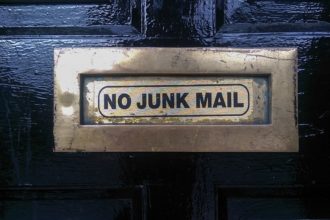Important Security Measures for Small Business Websites


Cybercrime is a rising threat to small businesses with websites. If your company offers services online, then the threat would be even severe. Do not underestimate the damage a hacking attempt or malware could cause at your business. The company should prioritise cybersecurity and take necessary steps to secure all company-owned domains. If your business runs a website, here is a list of ways you can improve the security:
Obtain an HTTPS Certificate
When you go to websites, have you noticed a small, green “secure” notification on the left hand side of the web address? That is an HTTPS certificate indicating the domain is secure. This little green market is important for showing your clients that the site is legitimate. Fake websites get created all the time so cybercriminals can make a profit. You can largely prevent your site from getting clones for nefarious purposes by an HTTPS certificate.
Use Secure Socket Layer Protection
Small business owners should seriously consider the option to buy SSL certificate. This is different from the HTTPS certificate mentioned above. This certificate encrypts data sent between a user’s web browser and the website. This is an additional and necessary layer of protection to keep your customers’ sensitive personal information highly secure.
Install Antivirus Software
There should be antivirus programs installed on your computer, web browser, server, and all office devices. Malware on a device that you use to access the website could end up infiltrating the site. Therefore, make sure antivirus software is properly installed and updated to keep your site safe.
Fix Code Vulnerabilities
Vulnerabilities in the source code of your business website are how hackers get access. A vulnerability could be easily spotted by installing a program that continuously scans the source code if your site for bugs. Install this tool on your website to keep it clean and free of errors that might give a hacker an opening.
Protect the Server
Website protection doesn’t only occur from the browser end. There should be adequate security measures implemented on the server end as well. Your web host is responsible for secure your site’s data. However, you should be careful enough to choose a web host that provides protection, such as with encryption protocols. If you have a dedicated server, make sure security software, such as malware protection, is already installed. Additionally, validation checks should be routinely performed from the user and server sides as well. Validation checks look for coding errors that indicate malware. Make sure your business has a techie who can handle these things.
Use Strong Passwords and Limit Access
As always, use complex passwords on your website that are hard to guess. Make sure the passwords are strung together using random letters and numbers. Recognizable words of any kind could put your website at serious risk. Therefore, maintain a strong password policy for everyone who gets access to the business website. In addition, also limit the number of people who get access to the admin account. It really should be limited to one or two. It’s best not to share account information among employees and instead create a separate account for each employee. This creates added levels of security.
It’s important to keep in mind that no website is completely free of hacking attempts. But implementing the above suggestions would drastically reduce the risk of a devastating cyber attack.

